Ethics of Renaissance Ethics of Renaissance
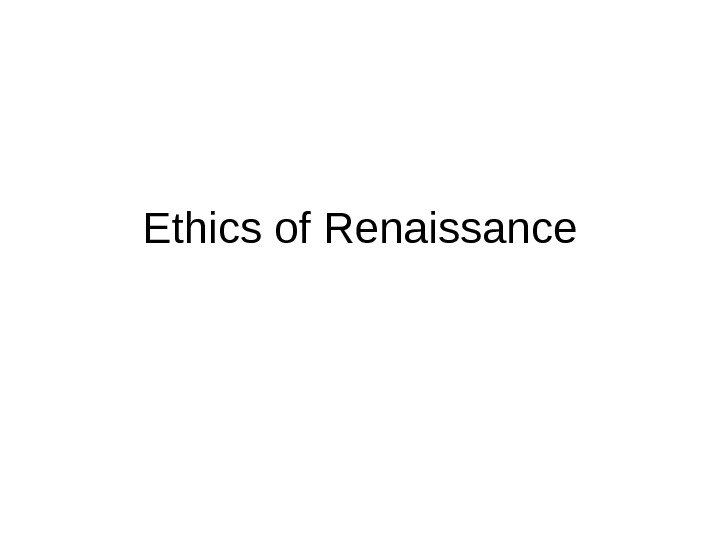
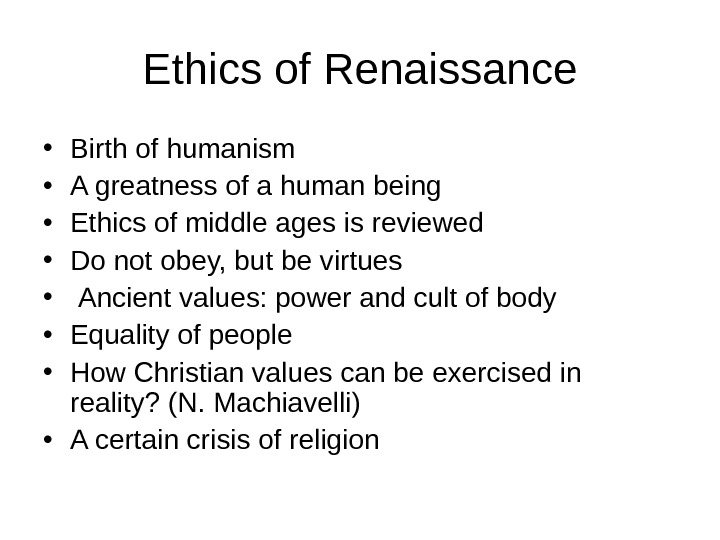
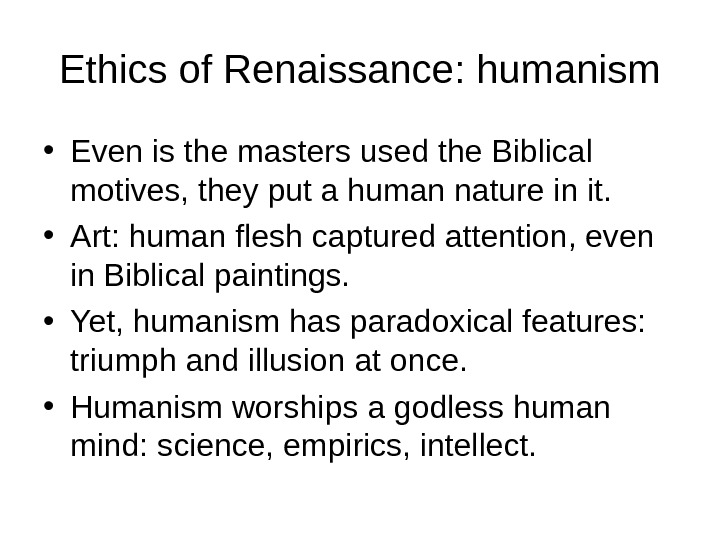
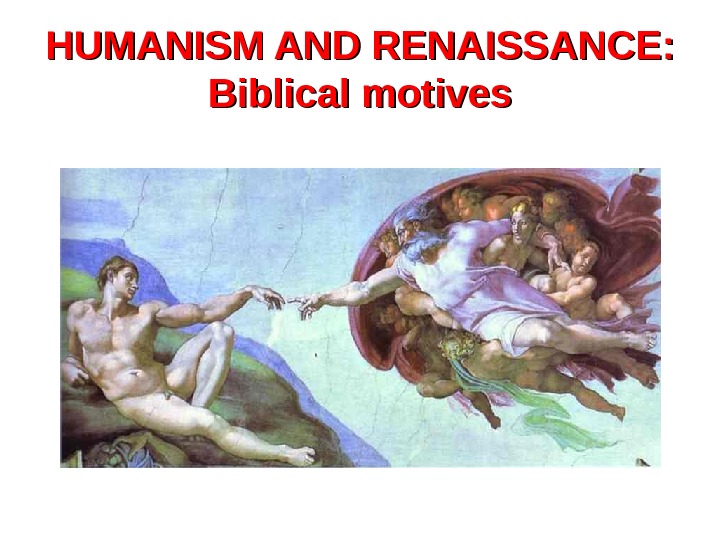
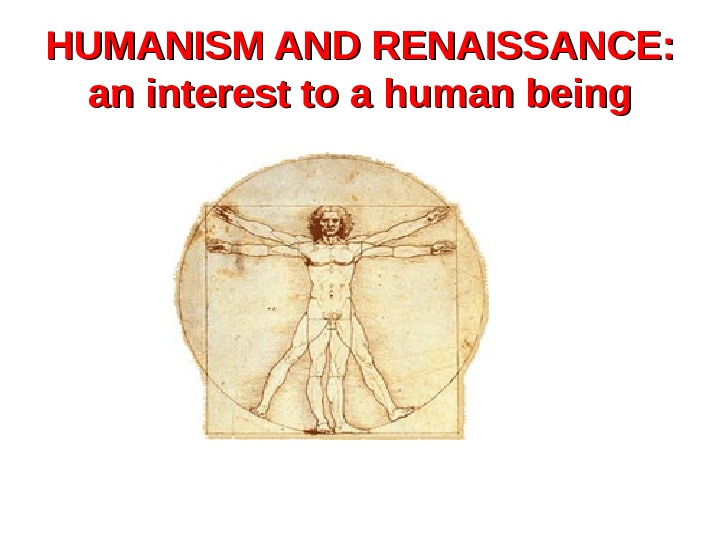

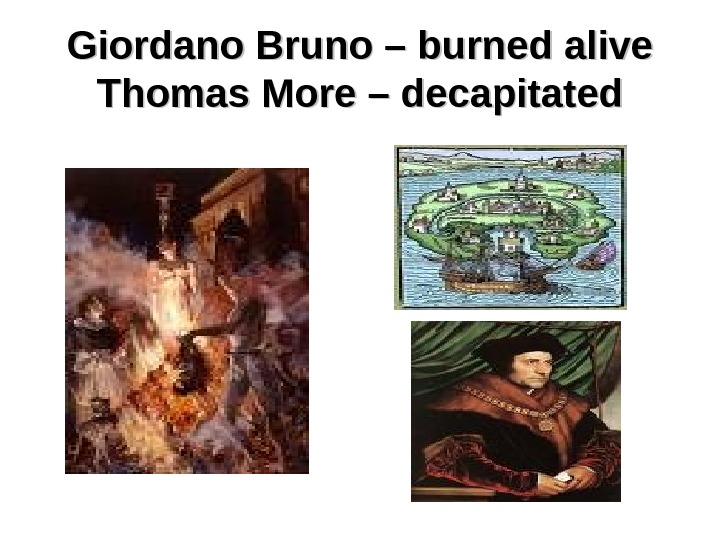
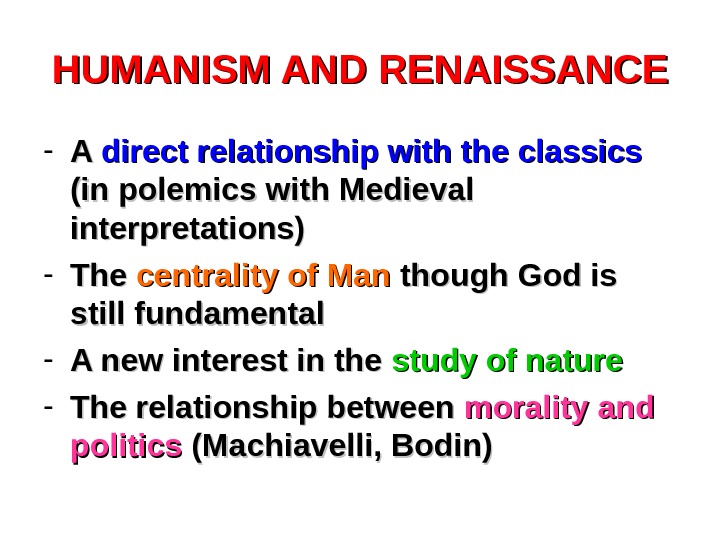
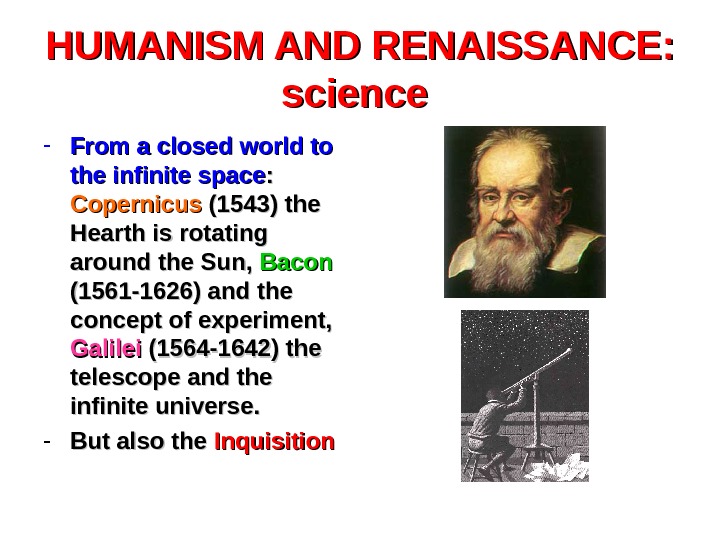
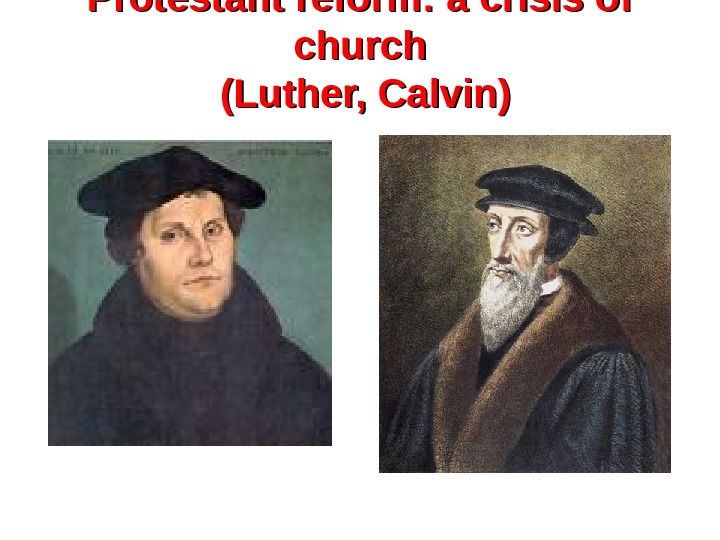
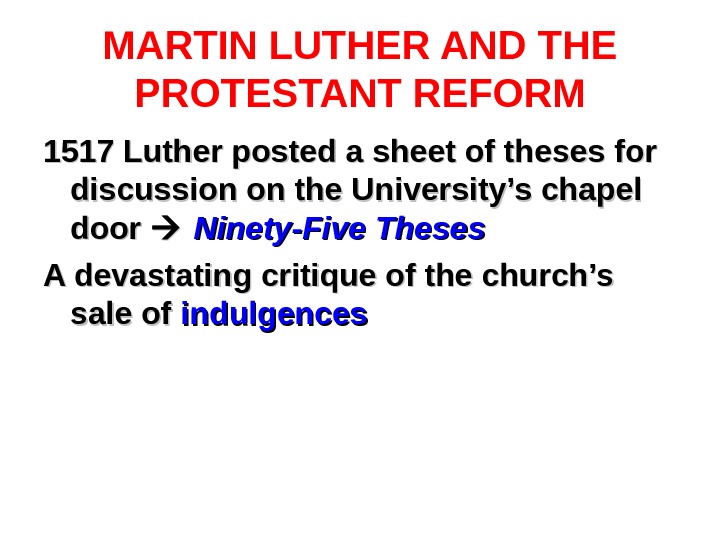
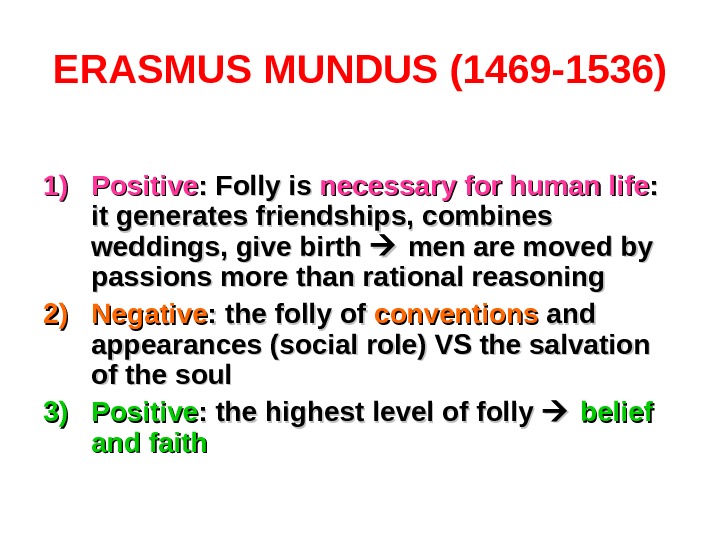
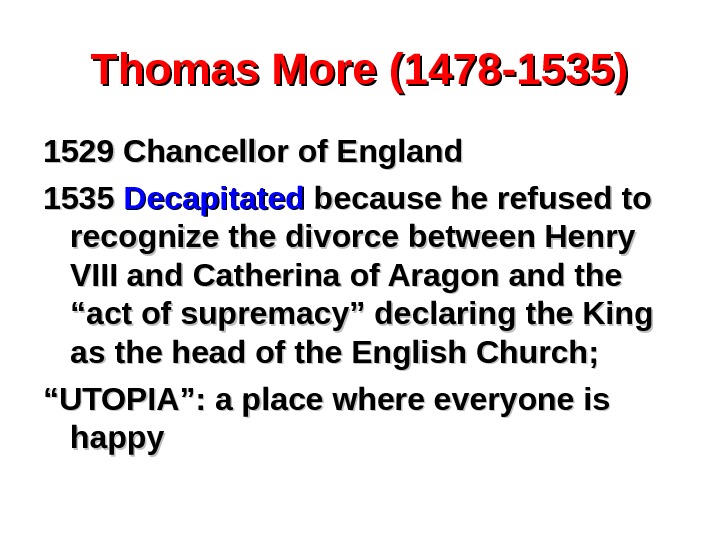
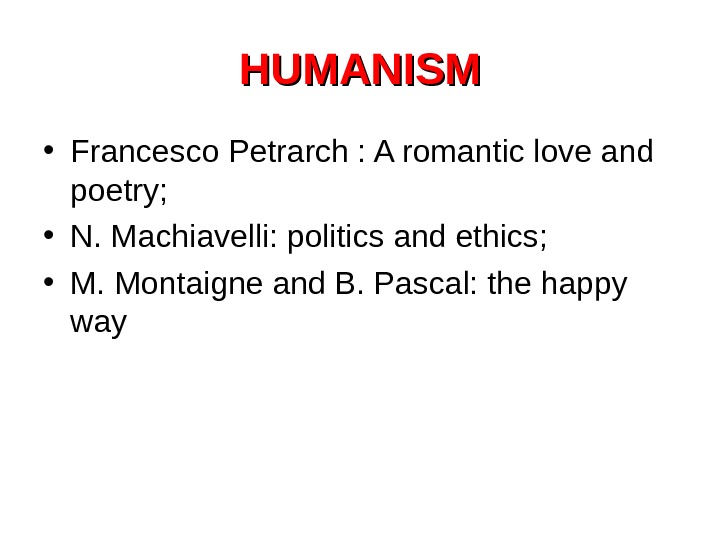
- Размер: 352 Кб
- Количество слайдов: 14
Описание презентации Ethics of Renaissance Ethics of Renaissance по слайдам
 Ethics of Renaissance
Ethics of Renaissance
 Ethics of Renaissance • Birth of humanism • A greatness of a human being • Ethics of middle ages is reviewed • Do not obey, but be virtues • Ancient values: power and cult of body • Equality of people • How Christian values can be exercised in reality? (N. Machiavelli) • A certain crisis of religion
Ethics of Renaissance • Birth of humanism • A greatness of a human being • Ethics of middle ages is reviewed • Do not obey, but be virtues • Ancient values: power and cult of body • Equality of people • How Christian values can be exercised in reality? (N. Machiavelli) • A certain crisis of religion
 Ethics of Renaissance: humanism • Even is the masters used the Biblical motives, they put a human nature in it. • Art: human flesh captured attention, even in Biblical paintings. • Yet, humanism has paradoxical features: triumph and illusion at once. • Humanism worships a godless human mind: science, empirics, intellect.
Ethics of Renaissance: humanism • Even is the masters used the Biblical motives, they put a human nature in it. • Art: human flesh captured attention, even in Biblical paintings. • Yet, humanism has paradoxical features: triumph and illusion at once. • Humanism worships a godless human mind: science, empirics, intellect.
 HUMANISM AND RENAISSANCE: Biblical motives
HUMANISM AND RENAISSANCE: Biblical motives
 HUMANISM AND RENAISSANCE: an interest to a human being
HUMANISM AND RENAISSANCE: an interest to a human being
 HUMANISM AND RENAISSANCE: new culture Back to the classics Renaissance XV-XVI century (Leonardo, Michelangelo) A new birth of culture and arts (after Medieval Times)
HUMANISM AND RENAISSANCE: new culture Back to the classics Renaissance XV-XVI century (Leonardo, Michelangelo) A new birth of culture and arts (after Medieval Times)
 Giordano Bruno – burned alive Thomas More – decapitated
Giordano Bruno – burned alive Thomas More – decapitated
 HUMANISM AND RENAISSANCE — A A direct relationship with the classics (in polemics with Medieval interpretations) — The centrality of Man though God is still fundamental — A new interest in the study of nature — The relationship between morality and politics (Machiavelli, Bodin)
HUMANISM AND RENAISSANCE — A A direct relationship with the classics (in polemics with Medieval interpretations) — The centrality of Man though God is still fundamental — A new interest in the study of nature — The relationship between morality and politics (Machiavelli, Bodin)
 HUMANISM AND RENAISSANCE: science — From a closed world to the infinite space : : Copernicus (1543) the Hearth is rotating around the Sun, Bacon (1561 -1626) and the concept of experiment, Galilei (1564 -1642) the telescope and the infinite universe. — But also the Inquisition
HUMANISM AND RENAISSANCE: science — From a closed world to the infinite space : : Copernicus (1543) the Hearth is rotating around the Sun, Bacon (1561 -1626) and the concept of experiment, Galilei (1564 -1642) the telescope and the infinite universe. — But also the Inquisition
 Protestant reform: a crisis of church (Luther, Calvin)
Protestant reform: a crisis of church (Luther, Calvin)
 MARTIN LUTHER AND THE PROTESTANT REFORM 1517 Luther posted a sheet of theses for discussion on the University’s chapel door Ninety-Five Theses A A devastating critique of the church’s sale of indulgences
MARTIN LUTHER AND THE PROTESTANT REFORM 1517 Luther posted a sheet of theses for discussion on the University’s chapel door Ninety-Five Theses A A devastating critique of the church’s sale of indulgences
 ERASMUS MUNDUS (1469 -1536) 1)1) Positive : Folly is necessary for human life : : it generates friendships, combines weddings, give birth men are moved by passions more than rational reasoning 2)2) Negative : the folly of conventions and appearances (social role) VS the salvation of the soul 3)3) Positive : the highest level of folly belief and faith
ERASMUS MUNDUS (1469 -1536) 1)1) Positive : Folly is necessary for human life : : it generates friendships, combines weddings, give birth men are moved by passions more than rational reasoning 2)2) Negative : the folly of conventions and appearances (social role) VS the salvation of the soul 3)3) Positive : the highest level of folly belief and faith
 Thomas More (1478 -1535) 1529 Chancellor of England 1535 Decapitated because he refused to recognize the divorce between Henry VIII and Catherina of Aragon and the “act of supremacy” declaring the King as the head of the English Church; ““ UTOPIA”: a place where everyone is happy
Thomas More (1478 -1535) 1529 Chancellor of England 1535 Decapitated because he refused to recognize the divorce between Henry VIII and Catherina of Aragon and the “act of supremacy” declaring the King as the head of the English Church; ““ UTOPIA”: a place where everyone is happy
 HUMANISM • Francesco Petrarch : A romantic love and poetry; • N. Machiavelli: politics and ethics; • M. Montaigne and B. Pascal: the happy way
HUMANISM • Francesco Petrarch : A romantic love and poetry; • N. Machiavelli: politics and ethics; • M. Montaigne and B. Pascal: the happy way
